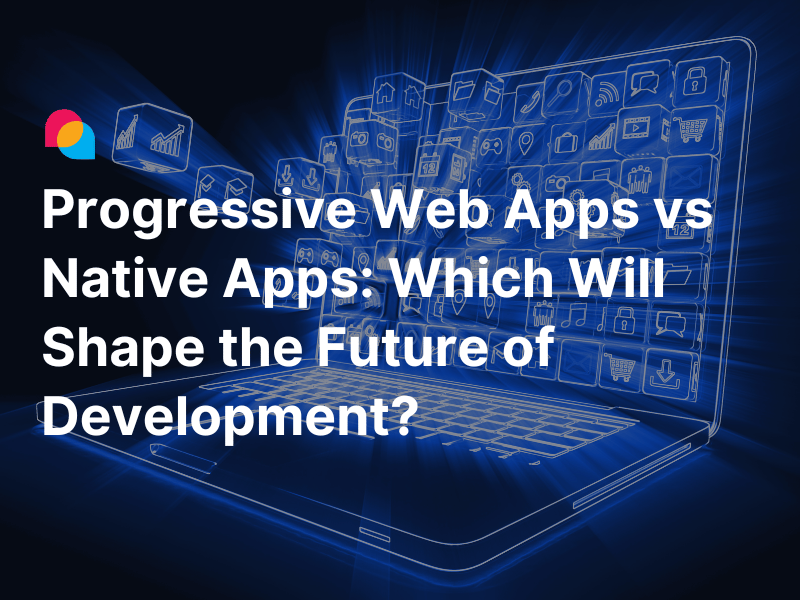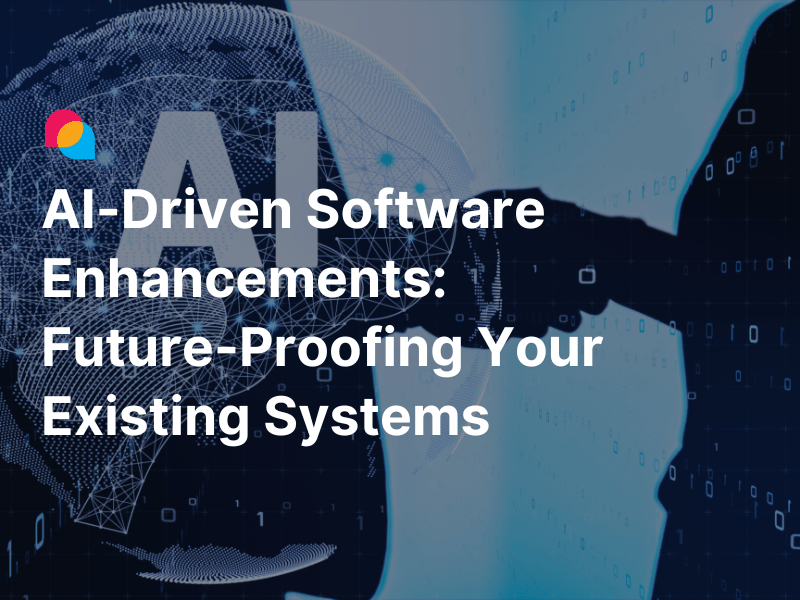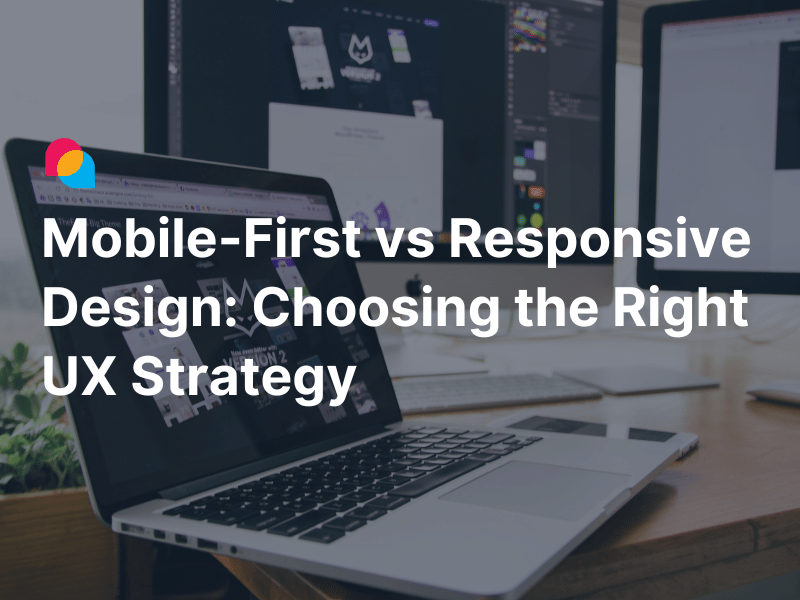As we delve into the burgeoning world of artificial intelligence (AI), it's clear we're not just participants in a technological evolution; we're at the forefront of a revolution. This journey is about enhancing software development efficiency, transforming how we create, test, and deploy software. Let's explore why AI in software development isn't just a fleeting trend; It's a game changer that's reshaping our digital landscape.
Why AI in Software Development?
Understanding the Surge of AI in the Tech Landscape
In recent years, AI has morphed from a niche fascination into a powerhouse tool across industries. In software development, the allure of AI lies in its potential to automate complex processes, enhance decision-making, and foster innovation at a pace that human effort alone can't match. It's like having a superpower that turns the tide from 'getting it done' to 'smashing it out of the park'; and who wouldn't want that?
Potential Impacts on Speed, Accuracy, and Creativity
Imagine slashing your project timelines in half while doubling the accuracy of your outputs. AI brings this bold vision within reach by automating mundane tasks and analyzing vast datasets faster than any human crew could. But it's not all about speed and precision; AI’s real charm lies in its ability to enhance creativity. It offers developers a sandbox of infinite possibilities, enabling them to experiment without the typical constraints of time and resource limitations.
Laying the Foundations
Data, The New Oil
Just as oil fueled the industrial age, data powers today’s AI-driven innovations. In software development, the quality of your AI outputs hinges on the quality of your data inputs. Clean, accessible data isn't just a nice-to-have; it's the bedrock upon which AI tools operate. Without it, even the most sophisticated AI can do little more than guesswork. It’s akin to trying to paint a masterpiece with muddy watercolors; The results just won’t pop.
The AI Toolbox
AI in software development isn't monolithic; it's a diverse toolkit brimming with potential. From machine learning models that predict code defects to natural language processing systems that interpret project requirements, the AI toolbox is replete with technologies that can transform how we build software. Understanding these tools isn't just beneficial; It's imperative for any team looking to stay competitive in this fast-paced arena.
Aligning AI with Software Teams
Integrating AI into existing development workflows can seem daunting. It’s like introducing a new band member when the album’s half-done; the rhythm needs to sync! Training teams to effectively leverage AI tools means ensuring they understand not just the 'how' but the 'why'; The strategic imperatives that these tools support. It’s about creating harmony between human creativity and machine efficiency to produce software symphonies that resonate on every level.
The AI-Driven Development Process
Revamping the Planning Stage
In the realm of software development, the planning stage sets the tone for the entire project. It's where visions are mapped and blueprints drawn. With AI, this stage is no longer just about laying out a plan; It’s about predicting success. AI tools assist in project scoping and requirements gathering by analyzing historical data and predicting outcomes, thereby enhancing the accuracy of project timelines and resource needs. Think of AI as your crystal ball, offering insights that help avoid pitfalls before they even emerge.
Design Decisions Augmented
When it comes to UI/UX design, AI isn’t just another tool in the box; It's a revolutionary force. From automated layout generation to real-time user feedback analysis, AI in design helps translate vague ideas into concrete prototypes swiftly. This capability not only speeds up the design process but also enhances the creative freedom by allowing designers to explore more options and iterate faster than ever before. For instance, Generative AI can swiftly produce multiple design alternatives from simple descriptions, which accelerates the iteration process and enhances the adaptability of designs to user needs and feedback.
Writing Code with AI Companions
Enter the era of AI pair programming, where tools like GitHub Copilot and Microsoft IntelliCode suggest code snippets, review patterns, and even detect bugs as you type. These AI companions are reshaping the landscape of coding by making it faster, more efficient, and less prone to errors. They act not just as helpers but as co-creators, enabling developers to focus on strategic tasks and creative aspects of coding while the mundane is handled by AI.
Examples from Industry
GitHub Copilot, for instance, uses context from the code you're writing to suggest whole lines or blocks of code to insert. Microsoft's IntelliCode takes it further by learning from your codebase to make recommendations tailored specifically to your project. These tools are not just about speeding up the coding process; they're about enhancing the developer’s ability to produce clean, efficient, and error-free code.

Quality Assurance Reinvented
Automated Testing on Steroids
AI transforms the monotonous task of testing into a dynamic part of software development. AI-driven testing tools can automate unit tests and integration tests, adapting to changes in code in real-time. This not only speeds up the testing process but also increases its breadth and depth, allowing teams to cover more ground with greater accuracy.
Dynamic Bug Detection and Resolution
AI doesn’t just find bugs; it predicts them. By analyzing code as it’s written, AI tools can flag potential issues before they become embedded in the codebase. Moreover, AI can suggest optimal ways to fix these issues, reducing the time developers spend debugging and ensuring that solutions are not just quick but also robust.
Continuous Integration and AI
In the world of continuous integration and continuous deployment (CI/CD), AI is like having a hyper-efficient overseer. It can predict the impact of new code integrations and provide actionable insights that ensure seamless software updates. AI-driven CI/CD not only accelerates the process but also minimizes disruptions, making software releases smoother and more predictable.
Security at the Forefront
In an era where cybersecurity is paramount, AI enhances software security protocols by preemptively identifying vulnerabilities and suggesting fixes. From scanning code for security gaps to simulating potential breach scenarios, AI tools provide a proactive approach to software security, ensuring that defenses are not just reactive but predictive.
Deployment and Monitoring
AI in Deployment
Deployment strategies can greatly benefit from AI's predictive analytics, which can anticipate the best times and methods for deploying new software updates to minimize disruption and optimize performance. AI can also assist in environment setup and configuration management, ensuring that software is deployed in the most effective manner possible. It's like having a seasoned pilot who knows exactly how to navigate the turbulent skies of software deployment.
AI for Environment Setup and Configuration Management
Setting up a software environment can be fraught with challenges, from dependency issues to configuration mismatches. AI steps in as a meticulous organizer, automating these processes and ensuring that environments are precisely tailored to the needs of each deployment. This not only speeds up deployment cycles but also reduces the errors that can occur when configurations are managed manually.
Monitoring with Machine Learning
Once software is deployed, the real challenge begins: keeping it running smoothly. Machine learning models excel in monitoring applications in real-time, detecting anomalies that could indicate problems before they affect users. This capability allows for proactive maintenance, ensuring that issues are addressed quickly and often before they have any impact on the user experience.
Predictive Maintenance and Performance Tuning
Predictive maintenance is another area where AI can make a significant difference. By analyzing patterns in data, AI can predict when and where failures might occur and suggest preventive measures. Similarly, performance tuning can be enhanced with AI’s ability to analyze and optimize the performance of software applications, ensuring they are not just functional but optimally efficient.
The Future of AI in Software Development
Trends to Watch
As we look to the future, several emerging AI technologies stand out for their potential impact on software development. Deep learning, for instance, is paving the way for even more sophisticated code generation tools, while AI-driven project management tools could redefine how projects are planned and executed. These technologies are not just changing how we develop software; they are transforming what software is capable of achieving. These technologies are enhancing the capabilities of software development from project planning to execution, pushing the boundaries of what software can achieve.
Ethical Considerations
With great power comes great responsibility. As AI becomes more integral to software development, addressing ethical concerns such as bias, transparency, and accountability becomes increasingly important. Developers and companies must ensure that AI tools are used in a way that is fair, ethical, and transparent, to maintain trust and integrity in the technologies we rely on.
Case Studies and Industry Insights
Success Stories
Leading tech companies are already showing how AI can be integrated into software development to dramatic effect. Companies like Google and Microsoft are leveraging AI to streamline development processes, enhance productivity, and foster innovation. These success stories provide not just inspiration but also practical blueprints for others to follow:
- Google: Google has been at the forefront of using AI to optimize its development processes. One notable example is the use of AI to enhance the functionality of Google Translate. AI has allowed for more accurate language models and quicker translation capabilities, which are crucial for global product support and development. This has not only improved the user experience but also streamlined the development and maintenance of complex language data.
- Microsoft: Microsoft has leveraged AI across various development phases, including using it to automate testing and debugging in their software development lifecycle. This has led to faster release cycles and higher quality software products. Additionally, AI-driven analytics have been used to enhance the performance of cloud services like Azure, optimizing resource allocation and improving service delivery to end-users.
- IBM: IBM has implemented AI to enhance its product offerings, notably in cybersecurity with the Watson platform. Watson's AI capabilities have been utilized to predict and respond to security threats faster than traditional methods, significantly improving response times and effectiveness in threat management.
Lessons Learned
However, the path to integrating AI into software development isn’t without its pitfalls. Common challenges include data privacy concerns, the complexity of integrating AI with existing systems, and the need for significant upskilling of development teams. Learning from these lessons and anticipating potential hurdles is crucial for a smooth transition to AI-driven development.
Quantifiable Gains
The impact of AI on software development is not just theoretical; it's measurable. Metrics such as reduced time to market, increased code quality, and improved user satisfaction highlight the tangible benefits of integrating AI into development processes. These metrics prove that when AI is properly implemented, it can significantly enhance software development efficiency.
The measurable benefits of AI in software development are significant. For instance, JP Morgan's use of the AI tool COIN for legal document analysis has drastically reduced the time required for such tasks, enhancing both speed and accuracy. Similarly, generative AI tools have shown to decrease development time substantially, with some studies suggesting that complex codebases can be developed up to 90% faster.
Conclusion: Embracing AI in Software Development
In conclusion, the integration of AI into software development is transforming the industry from the ground up, enhancing every stage of the development process from planning to deployment. As we stand on the brink of this AI revolution, the key takeaway is clear: those who embrace AI's potential will find themselves at the forefront of the next wave of technological innovation. To start incorporating AI in your development processes, begin by evaluating your current tools and workflows, seeking opportunities for AI integration, and preparing your team for the transformative changes ahead. Embrace AI, and let it propel you into a future where software development is not just faster and more efficient but also more creative and capable than ever before.
References:
What is predictive analytics? - IBM
15 Impacts of Generative AI on Software Development—According to AI - cprime





